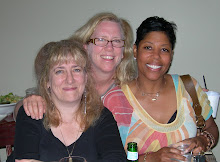
I am watching a video on YouTube. A young woman, valedictorian of her graduating class, is speaking about the limitations of our educational system, "a system that trains us, rather than inspires us." She reminds us that while we are engaged in the business of performing well on tests we are missing opportunities to really learn. I smiled sadly as I thought about the millions of students in classrooms where teachers are mandated to focus on test performance to the exclusion of authentic learning.
As a teacher in an urban classroom in a working class neighborhood where the majority of students qualify for free lunch, it is abundantly clear that this is what we are supposed to be imparting to our students. We are supposed to teach a scripted program that is tightly knit with a rigid pacing plan in our effort to improve test scores, euphemistically called "increasing student outcomes".
We are given endless statistics about how US students are not measuring up in science, technology, and mathematics (STEMM) and expecting that we can magically improve these statistics by tightening up our lesson plans and giving them more problems to calculate. We are never directed to open our lesson planning to allow for exploration, investigation, conversation, or the most dreaded 'ation' of them all, imagination.
In this urban environment, we are told that we need to give the students 'the basics'. In my elementary school student days, that meant the 3 R's; Reading, wRiting, and aRithmatics. Now I think that the 3 R's are Redundancy, Repetition, and Regurgitation, none of which are part of Bloom's taxonomy of higher thinking skills. Part of this is rooted in institutional racism that directs us to believe that minority students are unlikely to be capable of higher levels of thought. Another part of this has it's roots in a system that seeks to perpetuate itself.
We live in a nation that may have begun as a "land of opportunity", but has become the land of "haves and have nots," The "haves" have a vested interest in perpetuating this system which is easily accomplished by making sure that the "have nots" remain undereducated. If the huddled masses are completely illiterate, they can not read manuals with instructions for doing their jobs. However if they are semi-literate, they can acquire the skills needed to do their jobs and yet remain unable to read a voter information pamphlet. Similarly, if they can do calculations, they can measure lumber or balance simple accounts, but if they have higher mathematical reasoning, they can calculate the interest on a subprime loan.
As this pieces of the puzzle come together, it is not surprising that we have billionaires, politicos, media moguls, charter school corporations, and other "haves" leading the discussion on educational reform. By limiting our vision of who and what children (and their teachers) are to a series of standardized tests, we take our vision from finding and cultivating the creativity and genius in children.
Despite being the product of a large urban school district, I was the student that the "ed reformers" want people to believe do not come from public schools, I was that top percentile test taker. Don't misunderstand, I consider that I was a mediocre student with good grades and great test scores. But, like the valedictorian on YouTube and many students in large urban school districts, I was trained and not inspired. I was fortunate to have a sixth grade teacher who cultivated my interest in writing and a high school art teacher who asked really interesting questions while teaching me that sometimes our mistakes are better than the outcomes we were initially seeking.
As a teacher, I look for those "happy accidents", the mistakes, missteps, and wrong turns that lead us to authentic learning. I look for the AHA! moments when students make the connections that enable them to grasp new concepts. I look for the glimmers of passion and creativity and genius that nearly every child has and try to help that child cultivate those talents. And I try to instill them with my own fascination with the world in the hopes that they will remain fascinated too.

No comments:
Post a Comment